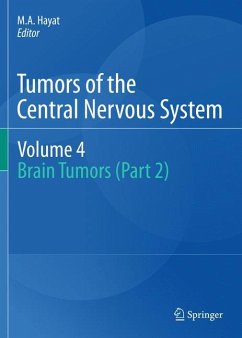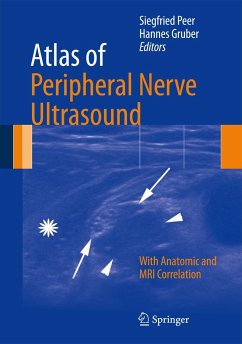
Diffuse Low-Grade Gliomas in Adults

PAYBACK Punkte
107 °P sammeln!
The second edition of this well-received volume has been revised and updated to reflect the advances in pathological classification and molecular epidemiology of diffuse low-grade gliomas (DLGG) in adults and offers an updated review on individualized therapies. This book presents the latest research pertaining to the diagnosis, genetics, therapy and management of DLGGs. It extensively covers recent research on the natural history of DLGGs and their interaction with the brain and reviews the new diagnostic and therapeutic strategies which increase survival and quality of life of the patient.Ne...
The second edition of this well-received volume has been revised and updated to reflect the advances in pathological classification and molecular epidemiology of diffuse low-grade gliomas (DLGG) in adults and offers an updated review on individualized therapies. This book presents the latest research pertaining to the diagnosis, genetics, therapy and management of DLGGs. It extensively covers recent research on the natural history of DLGGs and their interaction with the brain and reviews the new diagnostic and therapeutic strategies which increase survival and quality of life of the patient.
New topics covered are the management of DLGGs during pregnancy, functional rehabilitation of patients with DLGG and the onco-functional balance in DLGG, among others. The reader will have the opportunity to gain insight in both clinical and basic science aspects of this type of tumor and learn about the application of novel imaging techniques such as diffussion tensor imaging.
Edited by a leading expert in the field and authored by a team of recognised specialists, this book is a valuable resource for medical oncologists, neuro-oncologists and neurologists.
New topics covered are the management of DLGGs during pregnancy, functional rehabilitation of patients with DLGG and the onco-functional balance in DLGG, among others. The reader will have the opportunity to gain insight in both clinical and basic science aspects of this type of tumor and learn about the application of novel imaging techniques such as diffussion tensor imaging.
Edited by a leading expert in the field and authored by a team of recognised specialists, this book is a valuable resource for medical oncologists, neuro-oncologists and neurologists.












